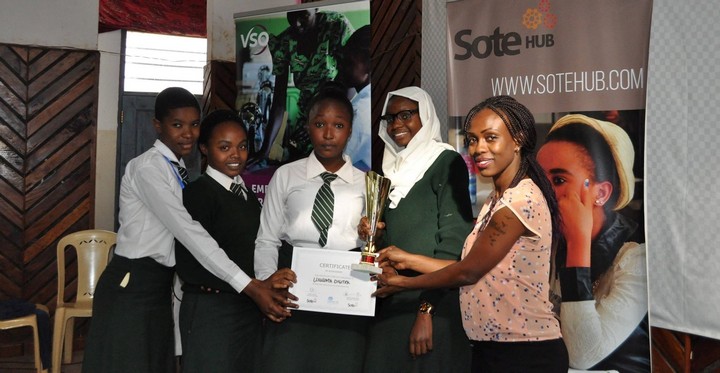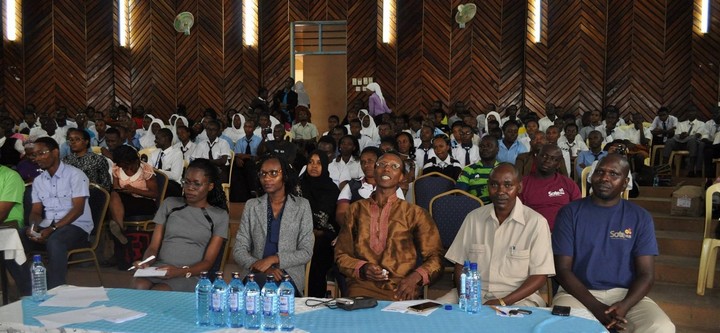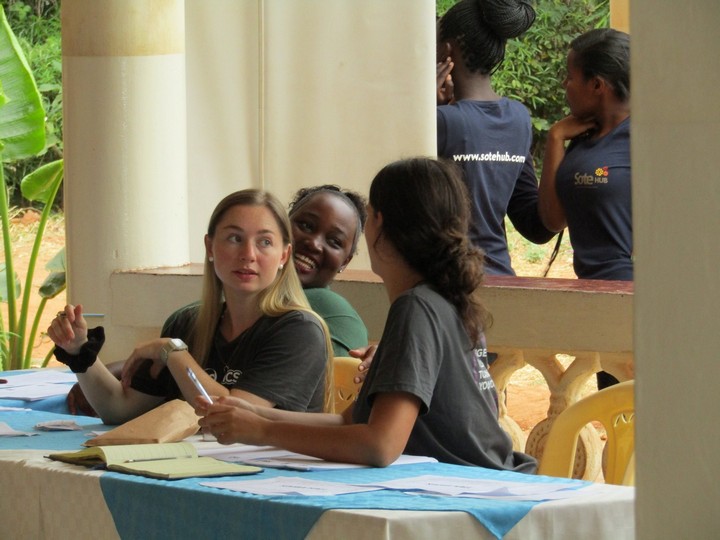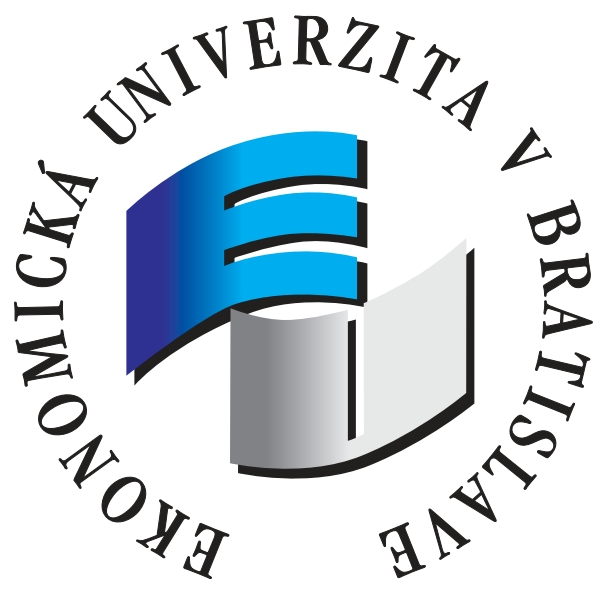Sote Innovation Fair
Sote Innovation Fair 2018 - the fourth harvest of startups that we help to grow at Kenyan schools
This year was different. The fourth Innovation Fair was focused on 26 small teams of up to four entrepreneurs that competed in various categories.

In previous three years we focused on showcasing the products of larger training companies from 12 high schools in Taita Taveta County. Last year we organized our first startup idea competition also for small teams. And one of the winning team – Anisa from Kajire Girls later won a national level of the StartupAfrica competition, where they beat other 90 submissions even from elite schools. And this April they traveled to Delaware in the USA. A part of their success was that they had a working prototype of their elephant electronic tracker device that prevents human-wildlife conflict and reports the position of elephants to KWS rangers. You can read their story in the Kenyan media .
So this year we focused entirely on the small team competition as the only central event of the trade fair. It was partly necessary as our Kenyan partners were running the Innovation Fair alone, only support from Slovakia was crowdfunded at DobraKrajina.sk portal run by Pontis Foundation, and we lacked the previous bigger SlovakAid project support.
What surprised us pleasantly is the very high portion of startup ideas that rely on digital technologies, internet of things and mobile phones. Out of 26 teams in total, a striking number of 18 teams had a startup idea that was either an app, platform or an Internet of Things (IoT) device. Others still had elements of IT, like a creative agency.
Recommendations from judges

The five winners were selected by judges who also wrote the report and recommendations. They advised that three startups that track wildlife and prevent poaching could merge into one, in order to better compete with other similar apps, like WILD by Kenya Wildlife Service.
Some AgriTech startups need to reduce their prices and focus on urban customers. Business ideas connected to waste management need to focus more on recycling and separating trash, use smart sensors to do it and focus on circular economy. Tomoko Juice team from Mwaghogho Boys in their opinion is ready to start selling, just needs to improve packaging and find sales channels. The car tracking apps that try to reduce traffic accidents face a stiff competition. You can see the descriptions of all startups on our Sote ICT SlideShare page. You can also read the recommendations in full.
Many of startups reflected on current social issues. This makes our startup competition a good follow up to previous essay competition called Ambassadors of Change. For example, We Safe team from Murray Girls came with an early warning system for disaster prevention and reflected on recent Solai Dam tragedy. Team from Mwaghogho Boys called E-Rider presented an app for the local motorbike taxi drivers, modeled after Uber. Eco Friendly Experts from Voi Girls presented their intelligent waste bin design with sensors, but they need to improve recycling. Linda Mama from Buguta Girls focuses on prenatal and postnatal care for pregnant women. And Electronic Insect Repellant from Chala Secondary wants to fight mosquitos and malaria with novel and affordable means.
All teams need to improve their business models and get more serious about testing their hypotheses and approach potential customers and mentors for feedback and “feedforward” – what to change and improve with their ideas. But the diversity and brilliance of some ideas and the fact that some teams managed to create working prototypes struck us with awe.
Future Plans
We want to continue bootstrapping and tweaking our model of “Growing Startups from Rural Schools” through Sote ICT Clubs and the methodology of training companies, that we introduced to Kenya with Slovak State Vocational Education Institute as the first country in Sub-Saharan Africa. But we want to increase our focus on startup idea competitions and incubation of real companies at Sote Hubs in Voi and Kwale. Last year we opened collaboration with schools in Kwale County and also started commercial training for young entrepreneurs to increase sustainability.
This year we will focus on improving the business models and prototypes of selected student startups from this Innovation Fair 2018 competition and help students who are about to finish secondary schools to transition and become members of Sote Hub. We also want to keep supporting our first two batches of together 8 startups from the last year and attract new ones.
Sote Hub is cooperating with VSO and accepting volunteers from the UK who bring new ideas and diverse connections, after years of mainly SlovakAid volunteers.

We are happy to see our graduates develop their skills further. The creative agency Rogim created professional music videos for two clients already, apart from many promotional videos, photo shooting and web design that they already had in their portfolio. They also created our Sote Hub webpage and webpages of other startups.
Cholaks Systems launched a product – IoT device and platform that monitors water usage for hotels and water utility companies.
We are also researching ways how to create a learning ecosystem of current and future startups that would nurture mutual exchange of best practice and peer mentoring. We have created a prototype platform Sote Talent and created an Effective Innovation Canvas and tested it in a separate competition before Innovation Fair. We want to create platform that would make learning of our students and young entrepreneurs more visible and collaborative.
We believe we are onto something. Our ambition is to reduce the cost of learning and gaining entrepreneurship skills and also increase the trust between cofounders and former students. But we still have a long way to sustainability and scale and we need to constantly innovate and embrace change.
Article is downloaded from::
https://www.dobrakrajina.sk/en/clanok/sote-innovation-fair-2018-the-fourth-harvest-of-startups-that-we-help-to-grow-at-kenyan-schools
Distance Learning...
Slovak Centre of Practice Firms mentors students and teachers in Kenya
According to mid-term strategy of the Slovak official development assistance (ODA) for years 2014-2018, Kenya is a priority country and a traditional partner of Slovak Republic in the area of development cooperation. Slovak NGOs are active in Kenya since mid 90s and SlovakAid after its establishment in 2003. Dozens of successful projects have focused mostly on health, education and development of countryside and agriculture. The first Slovak Development Forum was held in 2012 in Nairobi. In 2013 Slovak MFA confirmed the strategic focus of Slovak ODA on Kenya and a bilateral agreement on development cooperation entered into force.
At that time, at Business Academy in Levice we started to cooperate on the sectoral priority of ODA that is focused on education - reducing the level of youth unemployment, improving access to quality education and the acquisition of practical skills. Two Kenyan teachers with a coordinator, David Ogiga, and Slovak representative of the ICT4Voi project of the Pontis Foundation, Jakub Šimek, visited our Business Academy in Levice. The work of our practice firm Profolk Trade caught their attention as well as teaching computer science with interactive smart board, lessons on business administration and communication with ICT. They also liked the lesson of applied economics, where an electronic text book was used. We planted the seeds of interest in alternative ways of teaching, of becoming „modern teachers“. We were surprised how fast this interest spread in the far Kenya. Half year after the first meeting I boarded a plane to Nairobi and travelled to meet our Kenyan friends and their students. My task was to explain the modern forms of teaching focused on project-based learning with the use of ICT to teachers at five secondary schools in the Voi town district. It was a big challenge for me and I felt a big sense of responsibility because I didn’t go for holidays, but to represent our school, our education and wanted to pass on some of my experience and skills, with a main focus to change the system of work of the local teachers. After I returned to Europe I was often asked I I would come back. I replied “yes”, but I didn’t believe it would ever come true.
Today I can say I went to Kenya two more times and our cooperation in the project, now called Sote ICT, spread to 5 additional schools in the Taita Taveta County. Together with my colleague and an educator, Zuzana Meszarosova, in 2013 we trained not just teachers, but also their students in creating school projects and working in the practice firm. We taught students how to establish training companies and choose the suitable core business activity, select company management, create a marketing strategy, advertisement, etc. And to do all this with the support of ICT. In the practice company students have an opportunity to develop their practical business skills for real life, and thus increase their future chances in the labour market. The project-based learning changes the relationship between a teacher and a student. A student gains more autonomy. A teacher becomes a facilitator, mentor. And ICT becomes a tool that makes the learning process more effective. At the end of year 2013 we welcomed at our school another group of six Kenyan teachers including the coordinator David Ogiga. During the three days they spent in Levice, not just teachers, but also our students trained them in various sorts of software, introduced them to activities of teachers in the practice company. We showed them how to cooperate with a real partner company and how to develop creativity in students. They were very attentive listeners who were eager to try out new software, new forms of education and learn how to use them, in order to apply them in their schools and to present them to their colleagues at home.
My third visit to Kenya took place in 2014. I visited all ten secondary schools in the project. Teachers and students from every school presented their practice companies, their presentations, marketing products, advertisement videos. They shared how the relationships between teachers and students improved as well as the test scores of students. In Kenya only a small percentage of students continue to the university level. Therefore many of them prepare for a practical life after high school. Kenyan students, thanks to cooperation with our school, established practice companies, where they develop their business skills. This is a excellent way of education, where they can try out business in the area of tourism and advertising of products.
A group of students even created a bank as a practice company that is supported by a local branch of one of the Kenyan leading banks. They selected management, they know how to open a an account, do transfers and they even educate their parents how to use bank accounts for example to pay school fees in the real bank. During the year 2014 our cooperation with Kenyans intensified, they visited us twice and we always had a new educational program prepared for them.
Another important activity that changes the system of education at Kenyan schools is the establishment of student ICT Clubs at all ten secondary schools, where students can improve their skills on a weekly basis, for example by creating brochures, presentations, writing CVs and working within their practice companies. Besides regular club and company activities we organize, in cooperation with the Pontis Foundation and Slovak Ambassador to Kenya, Mr. Mlynar, various competitions between Kenyan and Slovak schools and joint student Skype conferences. We also organized two financial collections to support the development of Kenyan practice companies and their office supplies needs.
And what is the benefit for our students? They have an opportunity to present and communicate in English and can pass on their knowledge to teachers and students during Skype conferences. Students from our practice company, Slov-Ken, trade in Kenyan products such as ceramics, sisal baskets, traditional Kenyan jewellery, wood products and promote the Bata Safari shoes, the most popular shoe model in Kenya. They practice exporting the Golden Onyx marble and related products from their social enterprise – a protected workshop. This way they grow their knowledge in international trade.
Ing. Daniela Skladanova
Left Business Academy









